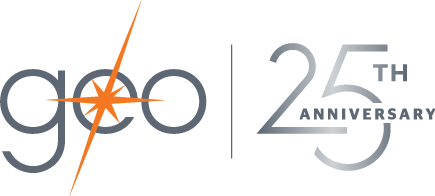In 2013, GEO organized sessions where senior leaders in philanthropy discussed challenges they faced in shifting their organizations toward effective grantmaking practice. We noticed one consistent theme: these senior leaders needed more support to change internal culture. Their conversations illuminated the gap between good intentions and effective implementation of change, spotlighting a lack of sector-wide resources and connections to support meaningful change management work. In response to this community need, GEO created the Change Leaders in Philanthropy Fellowship (CLIPF) to provide senior leaders a space to connect and address some of their most pressing culture and practice issues.
Over the course of the fellowship, CLIPF fellows explore and move into their individual and collective power in new ways. Fellows learn about their leadership style, interrogate underlying assumptions that maintain the status quo and hinder organizational change and offer peer mentorship to implement concrete plans for the long road of change. Because change leadership is always evolving, fellows continue to find support and community in the Change Leaders Community, an ongoing alumni network, well after their cohort experience is over.
While fellows come away from the program with tools and resources to support individual change, their collective commitment to change is what pushes the field forward in transforming philanthropic culture and practice. This is the connection between internal culture changes and external impact.
Effective Shifts Require Vision – and Reflection
As an organization that draws its wisdom from its members’ experiences, GEO has been able to learn from and with five cohorts of CLIPF fellows. We’ve grown more and more curious about how internal culture and practice change can set the stage for faster, more effective, equity-centered changes in partnership with nonprofits and communities.
We’ve observed, for example, that shifting internal culture and practice takes vision – a courageous reimagining of what is possible for ourselves, our partners and our communities. Vision requires an honest reflection of the organizational and ecosystem-wide obstacles – the “current reality” – that could make external impact more difficult to achieve. Across the different cohorts, fellows have engaged in candid conversations about what it really takes to create change in individual organizations, exploring the promising practices and “must haves” for creating organizational conditions that contribute to equity-centered grantmaking.
“Vision requires an honest reflection of the organizational and ecosystem-wide obstacles.”
In the Change Leaders Community, we began outlining promising practices informed by the fellows’ stories, experiences and experimentation. Experimentation is a critical part of change management – it’s through feedback and refinement that we identify what is working (and what is not) to close the gap between vision and current reality.
Through deep and candid storytelling, the Change Leaders Community has been getting closer to a shared understanding of specific activities and shifts that are needed internally to change external relationships, behaviors and impact. We have learned about the importance of having engaged and committed board and CEO leadership, staff with diverse backgrounds and lived experience, an authentic understanding of the issues, strong community relationships and accountability, an atmosphere of trust and shared power, and a dedication to ongoing learning. Often the internal shifts seem mundane, but they establish crucial new habits that have far-reaching results. These small shifts are what translate intention into action.
Peer Perspectives
Here is one of the many examples we have heard about how internal working behaviors have led to shifts in external behavior and contributed to greater impact.
One of our CLIPF alums sits at the nexus of internal changes and external impact. She shared that her organization made changes to the work of one of their core grant reviews and operations team, including how often they met, what information they gathered in the community, and what lessons they shared with each other. She told the peer community:
"Intelligence gathering teams went out to learn more about key topical areas of need in the community and gather crucial information. We brought that intel back and deliberated with the full core team. Consistent and timely conversations helped us create a learning environment so that we all can know more about nonprofits in our region and can better support them. If we hadn’t been able to collaborate and share candidly and confidentially, we would not have been able to do that."
As a result of this internal change, her organization became more aware of what nonprofits need and more prepared to respond to those needs. Because intentional “intelligence gathering” was identified as a priority, staff were better equipped to understand and respond to challenges, create new grantmaking opportunities and lead as a “learning organization.”
Exploring Effectiveness in Change Management
As GEO celebrates its 25th anniversary, we are exploring what effective grantmaking can and should look like – and what it takes to get there. From the CLIPF community, we have heard that external effectiveness begins with having internal conditions that support and drive practice change. With the Change Leaders Community, we are digging more deeply into the “why” behind making these internal changes within philanthropic culture and practice.
Our work together continues to explore how changes that make our institutions better places to work can also improve how we serve nonprofits and partners to make our society more just, connected and inclusive. If you would like to share with us how GEO has impacted your perspectives on effectiveness over the years, be sure to send us a note.
Since 1998 GEO has been a community that has challenged itself to think critically, focused intently on what matters most to nonprofits’ success, and supported participants to implement smarter grantmaking practices. This year, the GEO community celebrates 25 years of exploring what effective grantmaking practice looks like in service of nonprofits and communities. Over the next few months, we invite GEO members, grantmaking practitioners, and other partners to share stories of how GEO has impacted your perspectives on effectiveness.

